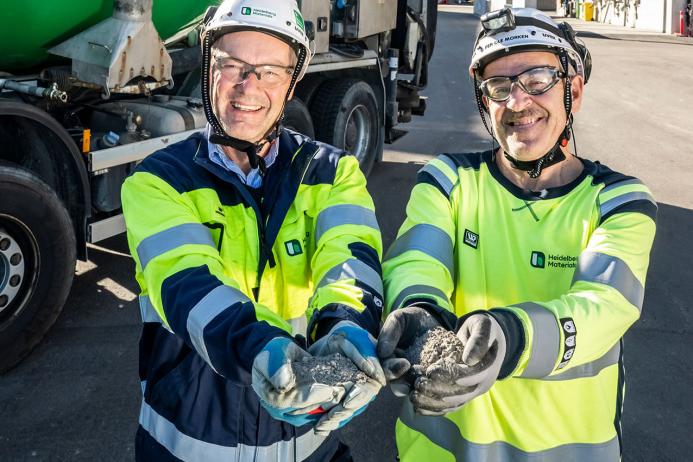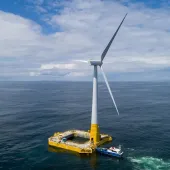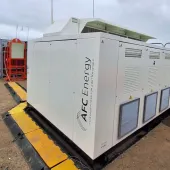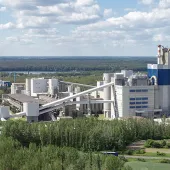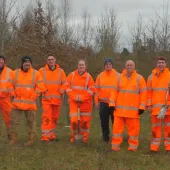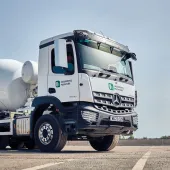Heidelberg Materials’ evoZero hits the market
Deliveries of world’s first carbon captured cement to customers across Europe have started
HEIDELBERG Materials have started delivering evoZero, the world’s first near-zero carbon captured cement, to customers across Europe. Based on carbon capture and storage (CCS) at Heidelberg Materials’ Brevik plant in Norway, evoZero sets a new benchmark in the decarbonization of construction. The product comes with a uniquely low Global Warming Potential, delivered via a process that is now fully third-party verified by DNV Business Assurance Germany GmbH and digitally traceable to ensure seamless transparency.
Dr Dominik von Achten, chief executive officer of Heidelberg Materials, said: ‘I am proud and excited to announce that the entire process chain is now established, and our Brevik CCS facility is directly contributing to the reduction of carbon emissions in the built environment. evoZero stands as proof of Heidelberg Materials’ commitment to real, measurable decarbonization and our ambition to lead the transformation of construction.’
One of the very first deliveries of evoZero supports the construction of the new Skøyen Station in Oslo, Norway, built by Skanska, a leading project development and construction company in Europe and Northern America. The station, a key infrastructure enhancement, will strengthen connectivity between western Oslo and the city centre. Situated 45m underground, Skøyen Station will offer two tracks and state-of-the-art infrastructure. Once open, it will enhance public transport capacity and integration, reducing car dependency and advancing a more connected Oslo.
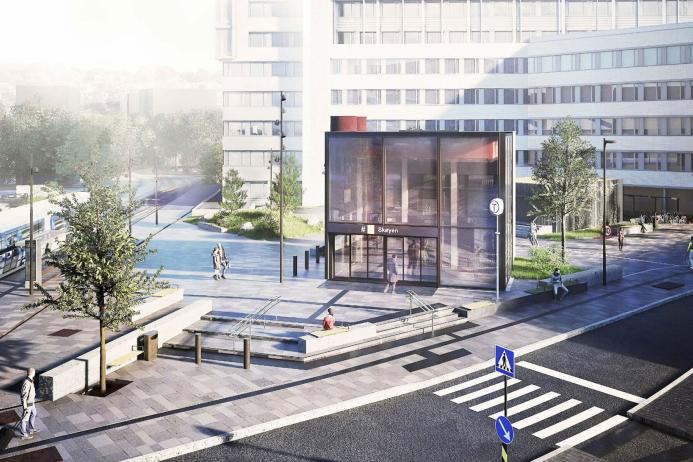
Another first evoZero customer is the German 3D-printing project DREIHAUS, with a total of three houses currently being developed in Heidelberg. DREIHAUS will serve as a new reference for serial 3D- printed residential construction using sustainable building materials. Compared with traditional construction methods, the 3D printing process enables significantly reduced material consumption through optimized design, further reducing CO2 emissions.
The production of clinker under carbon capture conditions, along with the verification of permanently stored CO2, is independently assured by DNV Business Assurance Germany GmbH. To ensure transparency in tracking and verifying the volumes of permanently stored CO2, all data is digitally recorded in Heidelberg Materials’ proprietary Carbon Bank.
Dr Katharina Beumelburg, chief sustainability and new technologies officer of Heidelberg Materials, said: ‘With DNV’s assurance of evoZero, Heidelberg Materials offer a new level of transparency and reliability in value chain decarbonization. evoZero enables our partners and customers to turn their material choices into catalysts for sustainable action. This is how our comprehensive strategy – embracing established CO2 reduction measures and leading the way in CCS – creates real impact.’
Jon Morrish, member of the managing board of Heidelberg Materials and responsible for Europe, added: ‘Our first deliveries are destined for true flagship projects in sustainable construction across Europe, with work on some of these projects set to begin imminently. By adopting evoZero, our customers can turn sustainability into a real competitive advantage and demonstrate leadership in the transition to CO2-reduced construction.’
evoZero is enabled by industrial-scale carbon capture and storage (CCS) technology at Heidelberg Materials’ Brevik plant in Norway. The Brevik CCS facility was inaugurated in June 2025 and is set to capture 400,000 tonnes of CO2 annually, or 50% of the plant’s emissions, which are then transported to safe and permanent storage under the North Sea.

